jeffstaple and Hiroshi Fujiwara: NYC meets Tokyo
Occupying opposite parts of the globe, the names jeffstaple and Hiroshi Fujiwara instantly evoke thoughts of respect, innovation and creativity. We catch up with both for a chat in Tokyo.
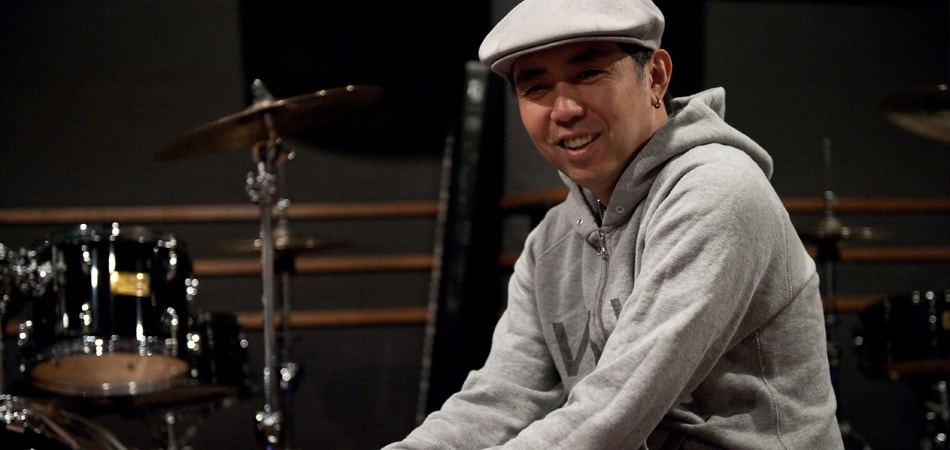
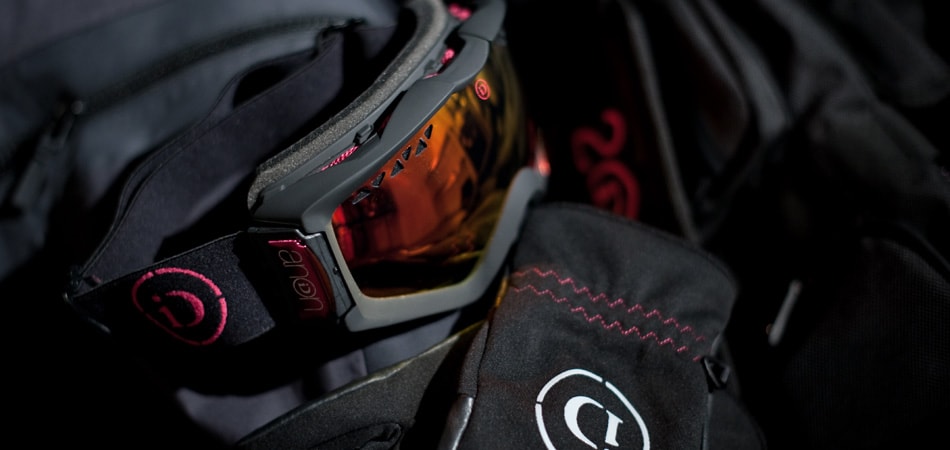
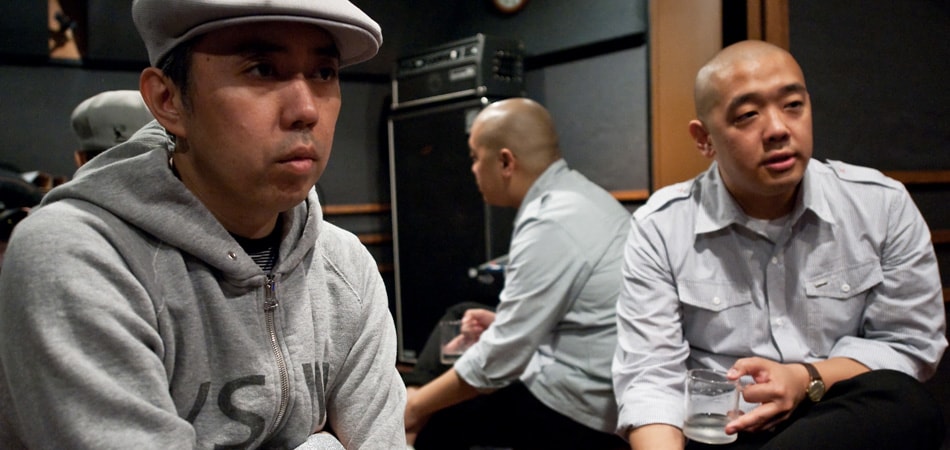
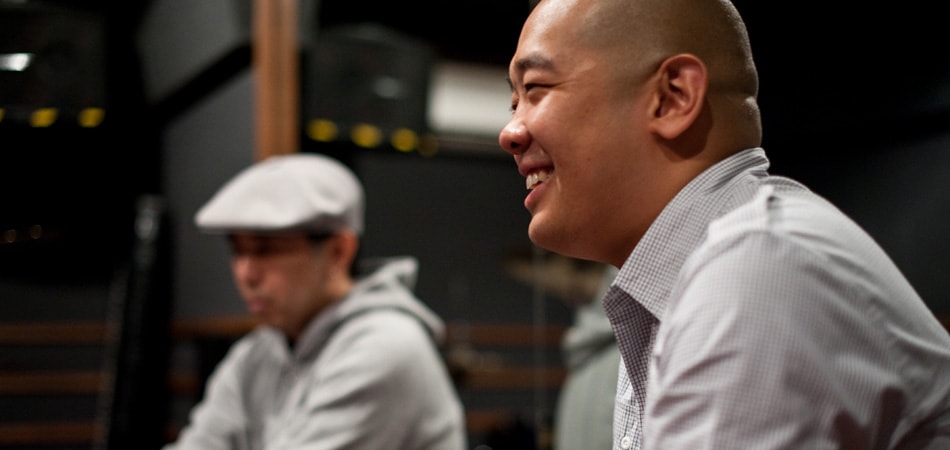
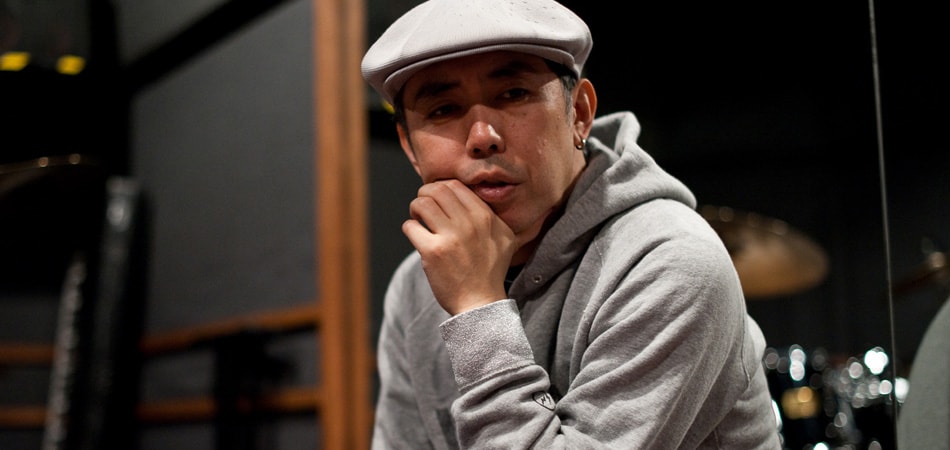
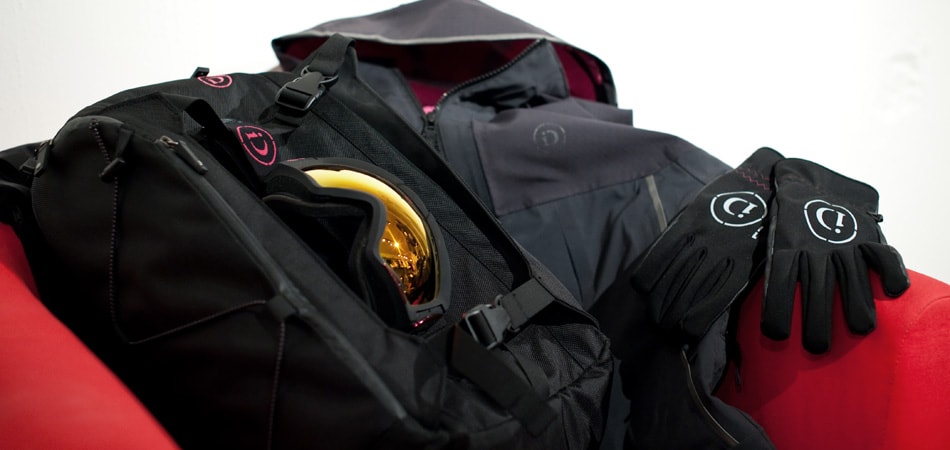
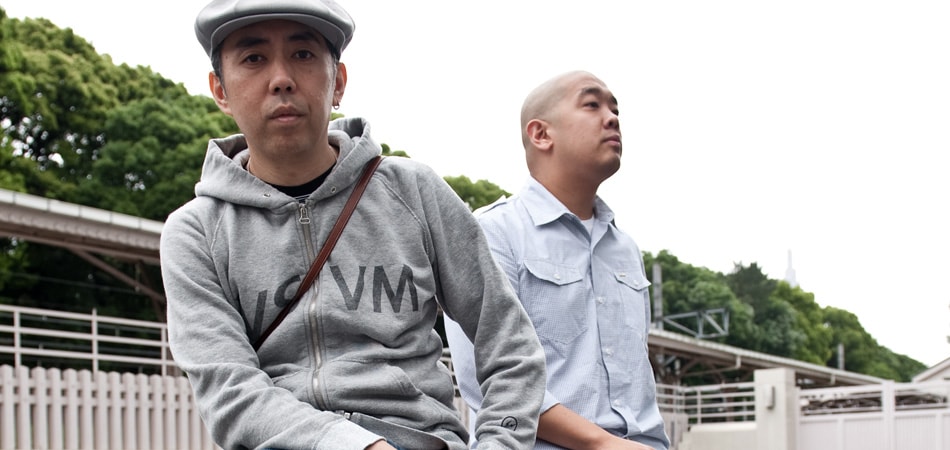
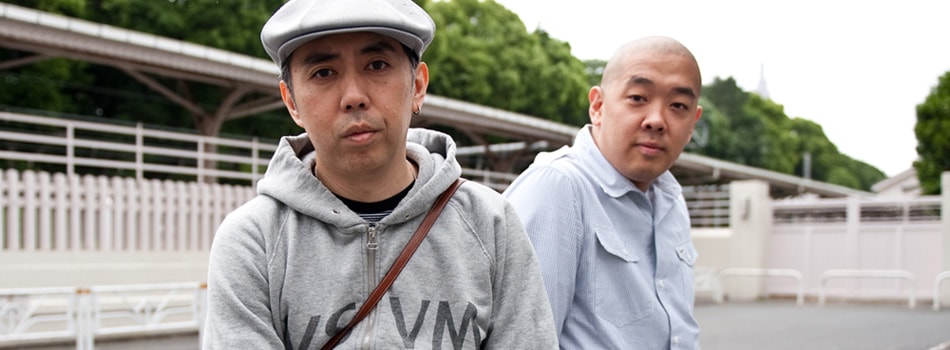
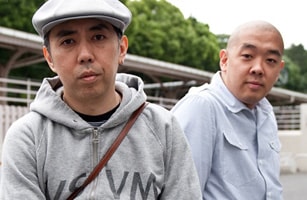
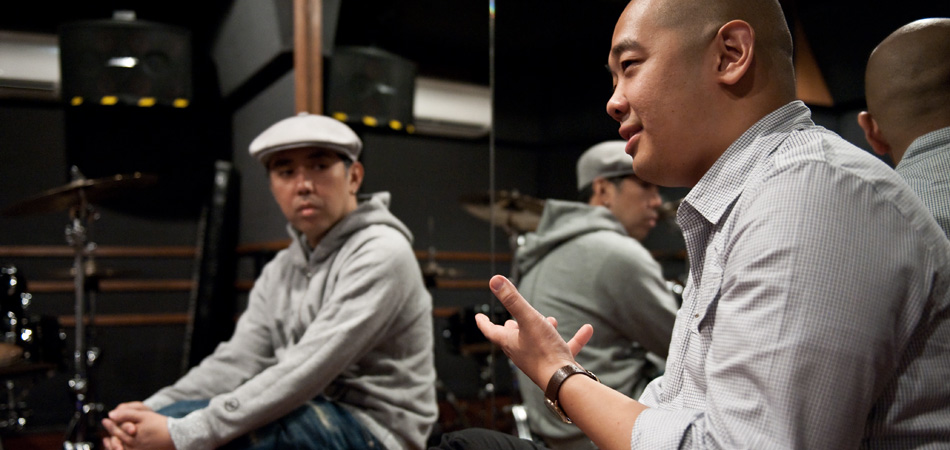
Occupying opposite parts of the globe, the names jeffstaple of Staple Design and Hiroshi Fujiwara of fragment design both evoke thoughts of respect, innovation and creativity. Through a relationship that began in the late 90s and eventually blossomed into a full-fledged friendship, both jeffstaple and Hiroshi Fujiwara have continually pushed the envelope amidst a growing and ultimately extremely saturated product market. Despite the relationship these two influencers posses, their work together has been sparse occupying only a handful of team-ups, that was until the two came together to form the cornerstones of Burton’s advanced diffusion line, iDiom. In a conversation involving both personalities earlier this year in Tokyo, we get a chance to speak candidly between the two and get a better understanding of how their relationship has played out over the years.
地球の反対側を拠点とする、Staple Designのjeffstapleとfragment designの藤原ヒロシの名前は、リスペクト、イノベーション、クリエーティブな感性というような言葉を呼び起こす。90年代末から始まった二人の繋がりは、いずれ硬い友情で結ばれ、jeffstapleと藤原ヒロシ、二人とも成長し、飽和しつつある商品マーケットの中で、常に限界まで挑戦し続けている。この影響力のある二人の深いつながりに反し、一緒に仕事をする事はほんの一握りほどで、Burtonのアドバンスドライン、iDiomを作り上げるため、二人はついに集結した。今年の前半、東京で二人と会話する中で、この数年の彼らの関係性がどのようなものに発展してきたかを探ります。
Interview: Jey Perie
Photography: James Lisle
Translation: LPH
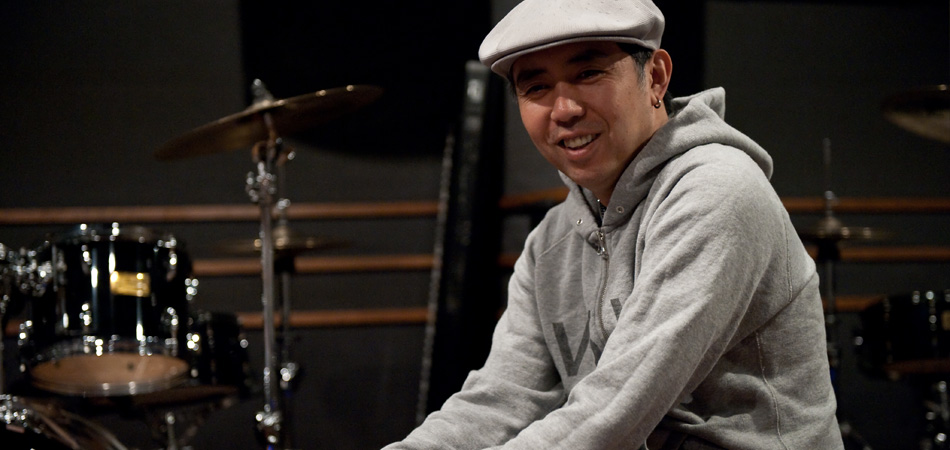
Interview with jeffstaple & Hiroshi Fujiwara
Thank you for coming, could you please introduce each other?
HF: He has Reed Space. I think he (Jeff) works as a consultant with many big companies such as Microsoft. He’s not supposed to be using an iPhone. Hard working guy.
Jeff: What do I know about Hiroshi… I think he’s the founder of fragment design, which is a company that doesn’t do anything, doesn’t make anything… just takes advantage of other companies who make things for them. I don’t think you’re that hard working (Hiroshi)… kind of take it easy. Nah, in all seriousness, it’s great to be working on a project like this with him.
You both spend lots of time in Tokyo and New York, how did you guys meet?
HF: He interviewed me before, when he worked at Fader Magazine.
Jeff: I was the Art Director.
It was back in…
Jeff:… ‘99. I was doing a story about Nike Japan. Back then nobody was really doing any stories about limited edition sneakers. I met with Nike and they said you should meet this guy Hiroshi, because he has a lot of influence on the sneaker scene. They weren’t really doing limited editions, it was really about “let’s try and do different things but let’s not make that many”, just in case they don’t sell. It wasn’t about marketing limited editions, it was more about new ideas, so they asked Hiroshi to help out on that. That’s how we first met.
What was the first collaboration you guys did together?
Jeff: That’s the thing, we don’t really work together that much. We met in the interview and it was more of a friendship than anything. We didn’t really work together on anything.
So this project with iDiom, is this the first major project together? Can you explain the IDiom concept?
Jeff: We did like a CD and a tee but nothing ever really major. This iDiom thing is definitely the biggest thing, but it helps that it’s through Burton and there’s a buffer so that it doesn’t affect our friendship and we’re more like helping Burton than anything.
HF: iDiom is sort of like pattern things. I don’t really care if they use my name but we just do it as a project. It’s not supposed to be directly affiliated, iDiom is iDiom.
Jeff: But it helps. [laughs]
How did it start?
HF: iDiom started through Greg from Burton, he wanted to do something with snowboarding and avant-garde fashion. Hiroki (Visvim) was working for Burton at the time as well.
When did you decide who would work on the 2010 Collection?
HF: Maybe 3-4 years ago. We kind of needed some new designers cause Hiroki was really busy with Visvim. So I asked him (jeffstaple) to work together.
jeffstaple & 藤原ヒロシとのインタビュー本日はありがとうございます。お互いを紹介してください。
HF: 彼はReed Spaceを持っている。彼は、マイクロソフトのような大きな企業のコンサルタント業もしていると思う。だから、彼はiPhoneは使っちゃいけないはず。とにかく一生懸命に働く人。
Jeff: ヒロシについて知っている事は...たぶん、彼はfragment designの創設者で、それは何にもしない会社で、何も作らないし...彼らの為に色々作ってくれる会社を利用するだけ。彼はまったく働かない...けっこう気楽に生きている。ってうそで、正直、このようなプロジェクトで彼と一緒に働けるのは凄くうれしい。
お二人とも東京とニューヨークによくいますが、どのように出会ったのですか?
HF: 以前、彼がFader Magazineで働いていたとき、僕をインタビューしてくれました。
Jeff: 僕はその時、アートディレクターでした。
それはいつ頃...
Jeff: ...99年。僕はナイキジャパンに付いて取材をいて。その当時は限定版スニーカーについて記事を書く人がいなかったから。僕はナイキを伺ったとき、スニーカー界ではとても影響力があるヒロシという人と会ったほうが言われたんだ。彼らは、限定版を作っていたわけではなく、あまり売れないかも知れないので「違うものを試したいけど、あまり多く作らないようにしょう」という考え方でした。当時はまだ限定版をマーケティングする事よりも、新しいアイディアが重要だったので、Nikeはヒロシに手伝ってもらうよう依頼したんだ。それが僕達が出会ったきっかけ。
お二人の最初のコラボレーションは何ですか?
Jeff: それなんだけど、あまり一緒に仕事をした事がないんだ。インタビューで出会い、それからは友人としての付き合いが長いので。一緒に何かした事はないんだ。
すると、このiDiomは一緒にする最初の大きなプロジェクトですか?iDiomのコンセプトを少し詳しく説明してください。
Jeff: CDとTシャツをしたことはあるけど、大きな仕事は一緒にした事がないんだ。このiDiomは確実に一番大きな仕事だけど、Burtonを通してやっているので、僕達の友情はあまり影響されないし、僕達はBurtonを手伝っているという形なんだ。
HF: iDiomは一つのパターンです。僕の名前が使われる事はかまわないが、タダのプロジェクトの一つです。僕は直接関わっているというよりは、iDiomはiDiomという感じです。
Jeff: でも、助かるけどね。(笑)
どのように始まりましたか?
HF: iDiomはBurtonのGregから始まり、彼はスノーボードと新鋭的なファッションで何かしたかったんだ。Hiroki (Visvim)も当時Burtonで働いていました。
誰が2010年コレクションに関わるかをいつ決めましたか?
HF: たぶん3、4年前。HirokiがVisvimで忙しかったので新しいデザイナーが必要でした。だから彼(jeffstaple)に一緒に働かないかと声をかけたんです。
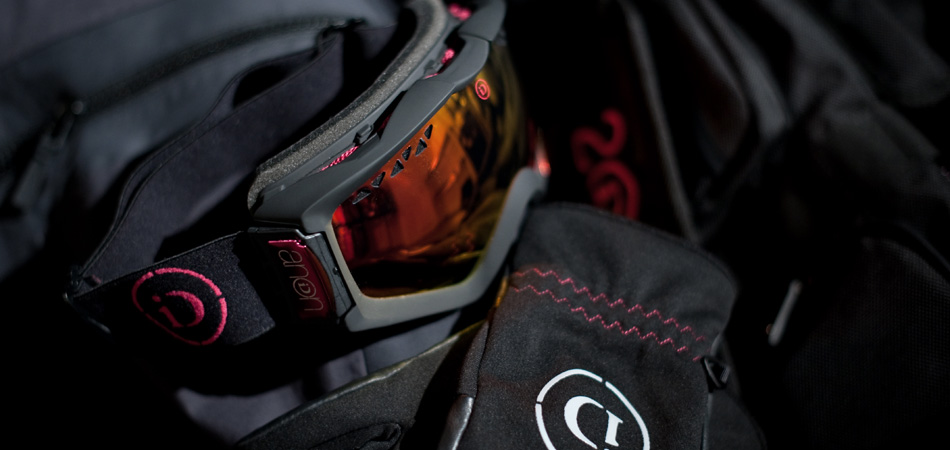
Was it an obvious choice to ask Jeff?
Jeff: The real story was that I was just in the right place at the right time.
HF: He was working for Burton too.
Jeff: I was doing work with Burton before. We do a lot of Burton work with Staple Design. When we were on that ski trip in North America, that’s when there were a lot of changes going on. A lot of employee shifting. There was a question of who was going to take over Burton. Hiroshi and fragment are sort of the top creative level vision of iDiom, they don’t design every single thing. They needed somebody to design. I just happened to be on that trip when these conversations were happening. I remember we were having a conference call with Greg (Burton founder) in that shitty lodge hotel and that’s where it started. “Jeff was already working with Burton, so let’s bring him on-board”.
So Jeff, when did you officially get on-board this Burton project?
Jeff: 3 seasons ago.
What did you want to bring to the project?
Jeff: I guess I wanted to first and foremost execute on Hiroshi’s ideas and bring about a more refined design style. In terms of branding things such as hang-tangs and branding issues, I wanted to clean those up. That’s actually my forte, graphic design first before fashion design. I really wanted that systematic style guide to iDiom that I felt wasn’t necessarily there before. Idiom was always about great function and great fabrics, the graphics were more like the end point so I really wanted to concentrate on that.
So this is going to be a global collection?
Jeff: Yes, now it is. Before it was only Japan but the last few seasons it has opened up. They’re only going to be available in their “Coalition” shops, which includes Burton’s best accounts as well as flagship stores.
HF: Yea, iDiom is just iDiom, just another Burton brand. It’s not really my brand or his brand. (jeffstaple)
When you guys get together for snowboard trips, what’s the best spot to snowboard? in Japan?
HF: It’s always Hokkaido, but a place called Hokkoda is really my favorite spot and I think he loves it too.
Jeff: I haven’t tried Hokkado have I?
HF: Yes, the time we wore snowshoes.
Jeff: Oh yea, that was extreme. I think Hokkaido is the best place to ride in the world. I’ve done South America, the Rockies, Canada and just all around. There are many things that are involved in snowboarding not just the conditions. There is the convenience, food, and weather. I think Hokkaido is the place for that.
HF: Yes, I agree.
Jeff: We went to a place in Canada you can only get there via helicopter and when you get there, there are no lifts and you have to take these snow tractors. That was some incredible riding but then it’s a pain in the ass. You have to take a plane to Washington, take a plane to another smaller town and then take a helicopter from there and then take a tractor… it’s just really a pain in the ass. So yea, it’s great riding.
HF: Yes, if you talk about convenience, it’s not that great.
Jeff: The riding was great but you can’t do that every month.
Jeffに声をかけたのは必然でしたか?
Jeff: 本音は、僕はいいタイミングでいい場所にいたんだ。
HF: 彼もBurtonと関わっていたからね。
Jeff: 僕は以前からBurtonと仕事をしていたんだ。Staple DesignとBurtonは今までたくさん仕事をしている。北アメリカのスキー旅行で色々な事が変わりました。社員の移動もたくさんあって、誰がBurtonを引き継ぐのかという疑問もあった。ヒロシとfragmentはiDiomのトップクリエーティブレベルのビジョンであって、彼らが何から何までデザインしているわけではないんだ。彼らは実際にデザインする人が必要で、そんな会話がされていた旅行中、たまたま僕がいたんだ。ボロいホテルのラウンジでGreg(Burton創設者)との電話会議を覚えている。それが始まりだった。「JeffはすでにBurtonと仕事をしていたから、彼を向か入れよう。」
Jeffが実際このBurtonプロジェクトに正式に向かい入れられたのはいつですか?
Jeff: 3シーズン前。
このプロジェクトに何を持ってきたかったですか?
Jeff: 僕はまず最初に、ヒロシのアイディアともっと洗練されたデザインスタイルを持ち込みたかったと思う。ブランディングに関する事をとにかくきれいにしたかった。僕の強みはファッションデザインよりグラフィックデザイン。以前iDiomにはなかった、システマティックなスタイルガイドを僕は提供したかった。iDiomはいつも最高な機能性と最高な生地の事をこだわっていて、グラフィックはいつ後回しにされていたから、僕は逆にグラフィックに集中したかったんだ。
これはグローバルコレクションになるんですか?
Jeff: はい、今はそうです。前は日本のみでしたが、この数シーズンで広がってきました。Burtonの最高級のアカウントやフラグシップストアなど、彼らの「提携」ショップで扱われます。
HF: そう、iDiomはiDiom、もう一つのBurtonブランドです。僕のブランドでも、彼(jeffstaple)のブランドでもないんです。
一緒にスノーボード旅行をする時、お勧めの場所はどこですか?日本ですか?
HF: いつも北海道に行くけど、八甲田は僕の一番のお気に入り。たぶん彼も好きなんじゃないかな。
Jeff: 僕は八甲田に行ったことないよね?
HF: あるよ、スノーシューズを履いた時。
Jeff: あぁ、そうだ、あの時は凄かった。僕は、北海道はスノーボードをする世界で一番いい場所だと思う。僕は南アメリカ、ロッキー山脈、カナダや他にも行ったけど、スノーボード以外にも色々な条件があると思う。便利さ、食事、気候。全て揃うのは北海道だと思う。
HF: 僕も同感。
Jeff: 僕達がカナダにある、ヘリでしか行けない場所に行った事があるけど、着いたら、リフトもなく、上までスノートラクターを乗らないといけなかったんだ。スノーボーディング自体は最高だってけど、めんどくさかった。ワシントンまで飛行機に乗り、違う小さな町までまた飛行機に乗り、ヘリに乗り、トラクターに乗り...本当にめんどくさかった。でも、スノボーは最高だった。
HF: そう、便利さから言えば、不便だった。
Jeff: スノボーは最高だったけど、毎月は出来ない。
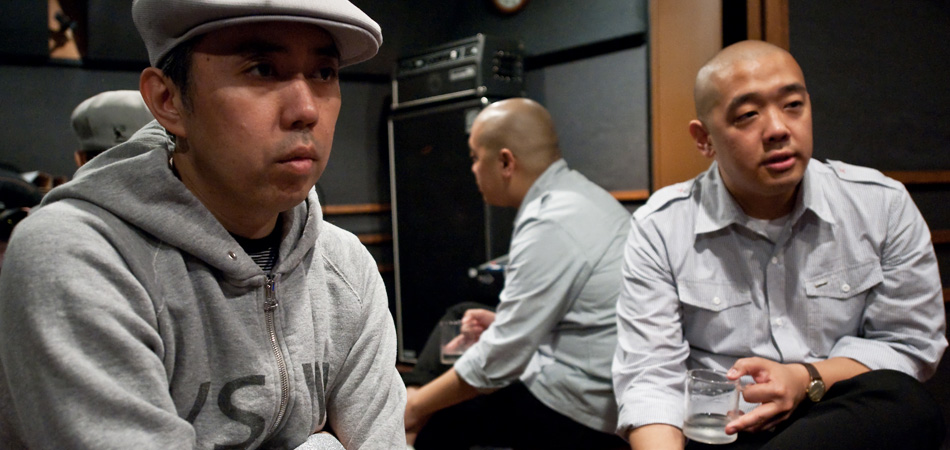
Jeff/HF: Yes, we’ve tried the Alps.
But the French people… that’s the negative thing. [laughs]
Jeff: No no no, the Alps are very groomed and wide. It’s kind of like Colorado in America. And we tend to like tree riding, back country riding and powder riding. The Alps is very much like a resort.
On an individual level, Jeff you seemed to be recently involved in some educational projects?
Jeff: I was teaching actually, as a full-time professor for the last 4 months.
HF: What were you teaching?
Jeff: I was teaching luxury branding. It was crazy because I was teaching the Master MBA program at Columbia University. It’s ironic because I’m a two-time college drop-out [laughs]. I don’t have a degree at all so it’s pretty amazing. It was awesome because there was another teacher there that taught the business side and I taught the design and marketing side, so it was like I was getting a free Masters class and getting paid to do it. It was an awesome experience. I’ve actually taught at NYU, Parsons School of Design and now Columbia University. I love teaching and I’m always saying that if Staple ever completely blows up, I will be perfectly happy being a full-time teacher. You probably didn’t know that about me, did you?
HF: No… you have to get everything ready? That’s a lot of work.
Jeff: Yea, you need everything ready. The worst is when the kids complain “oh, I have too much work to do so I can’t finish this homework”. It’s like baby-sitting a lot of the time. I hope none of my students will be listening to this interview [laughs]. But you get a lot of baby-sitting.
So you still have time to do your other Staple projects?
Jeff: Kind of. There’s always work to be done. But it’s important to do things you’re passionate about and that you make room for stuff like that.
Of course. You blog and twitter a lot and it seems like you really enjoy it. I have a friend back in New York asking about what you were doing and I mentioned teaching. I think it’s cool to have a diverse audience.
Jeff: Yea, it’s different. I like the fact I can travel among these circles. The people at Columbia University don’t give a shit about street culture or fashion, or Reed Space.
HF: So what’s the class about?
Jeff: It’s about how to build a company and run a business basically. As well as touching on the creative aspects. It’s not for people who want to start a hedge fund or a stock brokerage firm but want to create a brand. I try to show them how to do that. It’s kind of weird though, I don’t really consider myself successful, so I should just tell them the mistakes that I’ve made.
HF: What are the mistakes you’ve made?
Jeff: Oh my god… [laughs] So many mistakes I’ve made.
HF: Maybe girlfriend mistakes?
Jeff: I don’t discuss the girlfriend mistakes [laughs].
Jeff/HF: アルプスも挑戦したよ。
でもフランス人...それがマイナスポイントですよね(笑
Jeff: いやいやいや、アルプスはとても良く整備されていて、広い。アメリカのコロラドみたいだった。でも、僕達はトリーライディングやパウダーやもっと田舎のほうを好むんだ。アルプスはとてもリゾート化してた。
個人的な面では、Jeffは教育的なプロジェクトをしているようですね?
Jeff: 4ヶ月間はフルタイムの教授として教えていたんだ。
HF: 何を教えていたの?
Jeff: ラグジュアリーブランディングを教えていた。コロンビア大学の修士課程 MBAプログラムを教えていたんだけど、皮肉な事に、僕は2回も大学を中退しているんだ(笑)。僕は学位をまったく持っていないから、すごい事だよね。凄く良かったのは、もう一人の先生がビジネス面を教えて、僕はデザインとマーケティング面を教えていたから、僕はタダで修士授業を受けられて、給料ももらえた事。最高の経験だった。NYU、Parsons School of Designとコロンビア大学で教えてきた。教える事は大好きだし、いつも言っているのは、Stapleがなくなったら、僕は
喜んで先生になると思う。知らなかったでしょ?
HF: 知らなかった、全部自分で準備したの?大変だね。
Jeff: そう、すべて準備しないといけないんだ。最悪なのが、生徒達が「やることが多すぎて、宿題ができません。」という時。赤ちゃんの子守をしてる様だった。僕の教え子がこのインタビューを見ないのを願ってます(笑)。でも、本当に子守でした。
すると、他のStapleプロジェクトをやる時間はありますか?
Jeff: まあまあ、ある。常に仕事はあるから。でも大切なのは、情熱を注げる事を見つけ、そのために時間を作ることだと思う。
> もちろんです。ブログやTwitterもされていますし、楽しんでいるようですね。ニューヨークの友達から、Jeffは今何をしているか聞かれて、教師と答えました。違うオーディエンスがいるのは凄くいい事ですね。
Jeff: そう、とても違う。それぞれの間を行き来でくきる事が好きなんだ。コロンビア大学にいる人たちはストリートカルチャーやファッション、Reed Spaceにはまったく興味がないから。
HF: どんな授業内容なの?
Jeff: どのように会社を作り、ビジネスをするか。クリエーティブな面にも触れながらね。ヘッジファンドや投資ファンド会社を始めたい人たちには合わないけれど、ブランドを作りたい人たちの為なんだ。どのようにやるのかを教える。ちょっと変な感覚なのは、僕は自分自身の事を成功者と見ていないから、自分の失敗を教えたほうがいいのかもしれない。
HF: どんな失敗をしてきた?
Jeff: それはね~...(笑)失敗はたくさんしたよ。
HF: ガールフレンドの失敗とか?
Jeff: ガールフレンドの失敗話はしません(笑)。
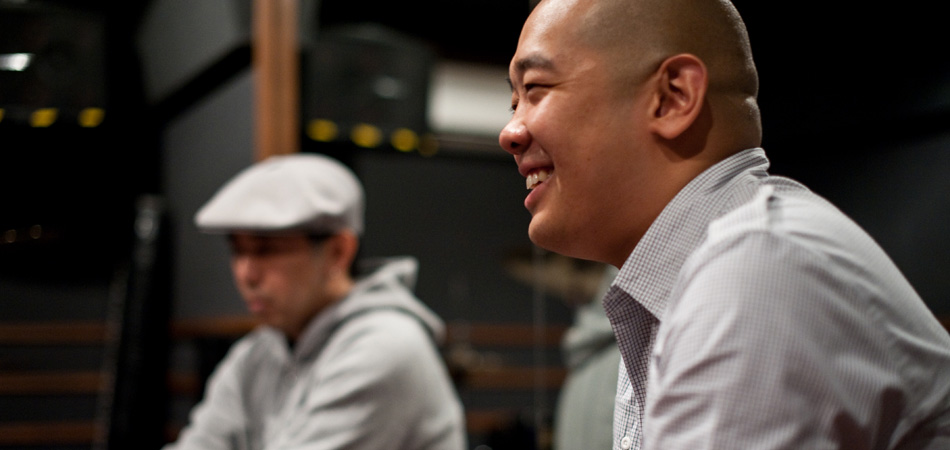
Did you have a particular mentor who set you on your current path?
Jeff: Michael Reed, my high school teacher. I named my store Reed Space after him. He taught me not only about art but also about good teaching and being able to communicate ideas properly. You don’t have to yell at people or yell or be aggressive at people to get your point across, you can do it in a sort of cooperative manner. He was good at that. My other teachers I hated them cause they would use fear to instill their ideas whereas Michael Reed used cooperation to instill his ideas. He passed away while I was still in school and he was teaching so it really kind of affected me.
I believe on a street-level, Bobbito Garcia was a big influence to you as well?
Jeff: He’s awesome, I just love Bobbito because he lives life so honestly and loves life.
I agree, I had a chance to meet Bobbito 2 years ago in Hong Kong and I knew of Bobbito Garcia, but I didn’t know exactly who he was and when I met him, he was so casual and cool. We spoke in Spanish a bit and I asked what he was doing here, and he was like “I’m DJing tonight at the Nike Air Force 1 event”… oh so you’re Bobbito Garcia?
Jeff: I think we were there that night?
Yes, it was at the Star Ferry Pier.
Jeff: Yea, it was a good night. I don’t know if you went?
HF: I don’t think so. Bobbito introduced us to Harlem though, it was really cool.
He’s a legend in New York, he’s still DJing a lot and involved in basketball?
HF: Yea, basketball’s his life.
There’s recently been a lot of collaborative products involving Nike, Fenom, and adidas with Kazuki. Is there anything we should expect for the Winter with fragment design?
HF: I just keep doing my thing, everything sort of the same. I’m not sure what Kazuki is doing but I’m sure he’s working for adidas.
You’re the creative director for Levi’s Fenom and the Nike and fragment projects right?
HF: I don’t know if there’s a proper word or title, but Fenom, yes. Levi’s ask me to do Fenom, so we started Fenom. I loved Levi’s anyways so that was good. With Nike, I like Nike too. I like to work with companies I like, otherwise I don’t work with them.
Even with adidas and through fragment design, do you involve yourself and just leave it to Kazuki?
HF: No, not at all. I don’t involve myself in that and I’m not sure what he’s doing.
Jeff: The adidas stuff isn’t really through fragment either is it…
HF: No, not really. Kazuki’s actually not really an employee of fragment. He’s just using my office [laughs] and helping me.
現在の道に導いたくれた師と仰ぐ人はいましたか?
Jeff: Michael Reed、僕の高校の先生。僕のお店のReed Spaceは彼の名前から取ったんだ。アートについてだけでなく、いい教え方とアイディアの正しい伝え方を教えてくれた。人に怒鳴りつけたり、アグレッシブにならなくても、協調性を持手手羽自分の考えを人に伝えられる。先生はそれが上手だった。他の先生は恐怖でアイディアを教え込もうとしていたから嫌いだったけど、Michael Reedは協力を使って考えを教えていたんだ。僕がまだ学校にいて、先生もまだ現役の時に亡くなったから、僕に凄く影響をを与えたんだと思う。
ストリートではBobbito Garciaがとても大きな存在だと伺いましたが?
Jeff: 彼は最高だよ。Bobbitoは本当に正直に生きて、人生を楽しんでいるところが凄く好きなんだ。
同感です。2年前、香港でBobbitoにお会いした時は、Bobbito Garciaについては知っていましたが、どのような人なのかは知らなかったんです。でも会ってみると、とても気さくでカッコイイ方でした。少しスペイン語で何をしに訪れたのかと聞いたら、彼は「今夜、Nike Air Force 1のイベントでDJをするんだ。」...これがBobbito Garciaか、と思いました。
Jeff: 僕達もその夜いたよね?
いました。Star Ferry Pierで行われました。
Jeff: そうだ、あれはいい夜だった。行った?
HF: 行ってないと思う。でも、BobbitoがHarlemを紹介してくれて、凄くよかった。
彼はニューヨークの伝説的存在ですが、未だにDJをして、バスケもやっているんですか?
HF: そう、バスケは彼の人生だからね。
最近、Nike、Fenom、adidasとKazukiとの間で色々なコラボレーションプロジェクトが出ています。冬にfragment designとで何か期待できる事はありますか?
HF: 僕はただ自分のことをやって、いつもけっこう同じ事。Kazukiは何をしているか詳しくはないけれど、adidasと仕事をしているのは確かです。
あなたはLevi’s FenomとNikeとfragmentのプロジェクトのクリエーティブディレクターですよね?
HF: それが正式な言葉か肩書きかは分からないけれど、Fenomについてはそうです。Levi’sは僕にFenomをやらないかと持ちかけてきたので、Fenomを始めたんです。Levi’s は前から好きだったから良かったんだ。Nikeも、Nikeは好きです。自分は好きな企業と仕事をするのが好きなので、好きではないと一緒に仕事をしません。
adidasやfragment designに関しては、関わっていますか?それともKazukiに任せていますか?
HF: いや、全然。僕はそれには関わっていませんし、彼が具体的に何をしているかはわからない。
Jeff: adidasもfragmentを通しているわけでもないから...
HF: そうだね。Kazukiも実際fragmentの社員ではないので。ただ、僕のオフィスを使って(笑)、手伝ってくれているだけ。
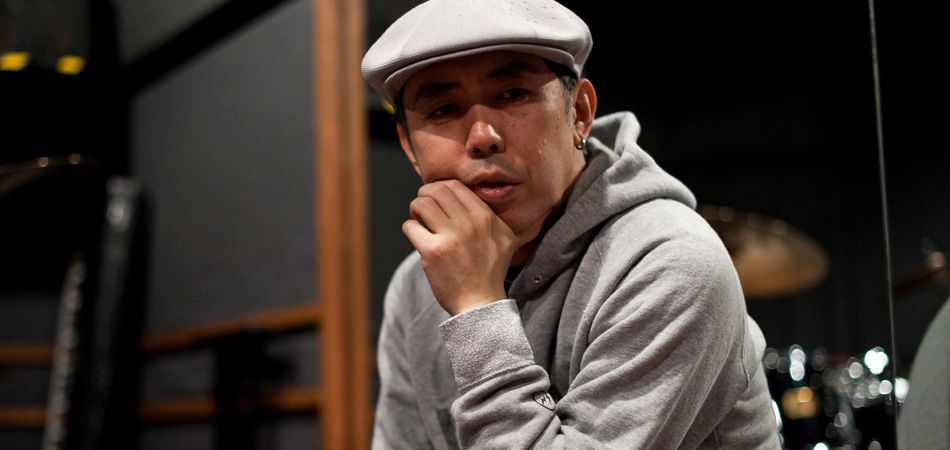
So you’re loyal to Nike?
HF: Yes.
I think it’s important to be loyal in this industry.
HF: Except me and Kazuki are sort of a double agent in this. [laughs]
Jeff: They’re in the same building, top-secret Nike stuff on the 2nd floor and top-secret adidas stuff on the 3rd floor.
Any new collaborations with Nike?
HF: I’ll make some more shoes, same style. I made some Noise t-shirts, Nike Noise t-shirts with the Noise and the Swoosh. You guys seen it?
Jeff: That was your idea? What was the concept behind it?
HF: I wanted to use the letter ‘N’ and end with an ‘E’ and that’s where I came up with “noise”. I think it works, ‘make some noise’ that’s why. You can use “nice” but… this is concept I want to continue more of with the Swoosh and the “Noise”.
As sort of the godfather of the fashion scene in Tokyo, what’s your opinion on the new generation? Right now I’m thinking of the clique with swagger, Kiri, and Big-O doing a lot of interesting stuff, what’s your opinion on them?
HF: I think its really good. Although those kind of new generations are doing new things, I don’t really know. It’s supposed to be the new thing for them. I really think the movement is good. I don’t wear those kind of clothes, but the new creativity is interesting to see.
There seems to be a diverse style going on with Tet (WTAPS/Bape), Shinshuke (NEIGHBORHOOD) and Bebetan (Bedwin) that appeals to myself. They seem to be getting a lot of respect outside of Tokyo, in Taipei and Hong Kong. How do people in New York accept what is going on in Tokyo?
Jeff: New York more recently has a great respect for what everyone is doing in Japan. And we also have a similar, new generation, of street wear culture coming up as well. Its kind of very similar like. It probably actually started in America where as like a second generation and then I feel like a lot of the new generation of Japanese street wear culture, street culture designers are sort of influenced by what America was doing. Like swagger and Phenomenon, I feel it is like the Japanese version of 10.Deep and Crooks. I don’t know I’m very similar in the sense of Hiroshi, I respect what they’re doing and I can’t look at every single thing they’re doing but I just have an overall 30,000 ft view of what is going on and I respect that what they are doing is new. Maybe I’m not suppose to get it. If I got it, it wouldn’t be new. It’s new, it’s exciting so respect that in that sense, which is what street wear culture is suppose to be like breaking new things and trying new things.
I think the big test is will they be able to progress out of that. Is it just a revival trend or are they really going to be able and take that and add to it and take it to the next level?
Some will survive and some won’t. When I started in 96-97, there were a lot of really great brands that aren’t around today and you don’t know why, it’s a shame.
すると、あなたはNikeに忠誠心があるということですか?
HF: そうです。
この業界で忠誠心があることは大切だと思います。
HF: でも、僕とKazukiは二重スパイのようなものだけどね。(笑)
Jeff: 同じ建物内、2階ではトップシークレットのNikeのもの、3回ではトップシークレットのadidasのもの。
Nikeとの新しいコラボレーションは?
HF: 同じスタイルで違うシューズを作る予定です。Noise Tシャツも作りました。NoiseとSwooshのNike Noise Tシャツ。見た?
Jeff: あれはヒロシのアイディア?どんなコンセプトだったの?
HF: 「N」という文字を使って、「E」で終わりたったので、「noise」を思いついたんです。「Make some noise (騒げ)」という意味で、良かったんだ。「nice」もあったんだけど...このSwooshと「Noise」のコンセプトは続けて行きたいんです。
東京のファッションシーンのゴッドファーザー的な存在として、新しい世代についてどう思いますか?僕が思いつくのは、swaggerのクルー、
KiriとBig-Oは面白いことをやっていますが、どう思いますか?
HF: 凄くいいと思うよ。新しい世代が新しい事はしているけど、僕にはあまり分からない。彼らにとって新しいから。このムーブメントは凄く良い事だと思う。僕はあのスタイルの服は着ないけど、新しいクリエーティブな感性は見てて面白いと思う。
個人的に僕が好きな、Tet(WTAPS/Bape)、Shinuske(NEIGHBORHOOD)、Bebetan(Bedwin)たちは違うスタイルを作り出しています。彼らは東京以外の台北や香港でとてもリスペクトされています。ニューヨークの人々は東京で起きている事をどのように受け止めていますか?
Jeff: 最近ニューヨークでは日本で何が起きているかとても関心が高いです。僕達にも、似たように、ストリートカルチャーの新しい世代が来ている。状況はとても似ています。たぶん、最初に始まったのはアメリカで、第2世代が始まり、日本のストリートウェアカルチャーやデザイナー達がアメリカに影響を受けたんだと思う。swaggerとPhenomenonは10.DeepとCrooksの日本版のような気がする。僕もヒロシと同様、彼らがやっている事はリスペクトしているし、細かいことまで全て把握していないけど、30,000フィート上空から見ている大まかな感じは掴んでいて、彼らがやっている新しい事はリスペクトしているよ。でも、僕が理解してはいけないのかもしれない。理解していれば、新しくないから。新しくて、面白い、その意味ではリスペクトするべきだし、新しい事を試して、新しいものを壊す事こそがストリートウェアカルチャーだから。
大きな試練は、彼らはそれから成長し続けるかどうか。これはリバイバルトレンドなのか、それとも、これから何かを足して新しいもの作り出せるのか?
生き残る人もいれば、そうでない人もいる。僕が96年‐97年に始めた頃、今は亡きいいブランドがたくさんあって、何で消えたのかは分からないが、残念だよ
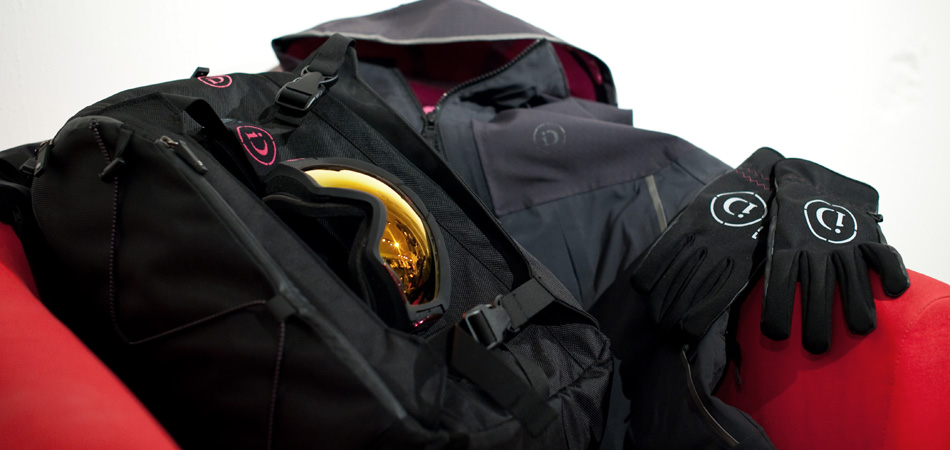
You were recently involved in the revival of Starter. That was really cool.
Jeff: Its changed hands because starter used to be owned by Nike and that’s how we started it as a relationship with Nike but Starter was sold to Jay-Z, then he sold Rocawear and formed a new company and that company bought Starter from Nike. So there was a bit of transition and dealing with the contractual stuff, but we’re still doing it. There should be some pretty new exciting stuff coming out at the end of this year for Starter. It’s similar to Idiom. I don’t have any ownership in Starter and for me it’s more of a consulting thing. Starter one day will not involve me and somebody else might do it, but it will live on.
Are there any Japanese brands that have been big in the past, eventually faded out, but might make a comeback?
HF: No. I don’t think so. Nothing really disappeared. They’re all still around. Japanese are very loyal to their brands. Japanese street brands have been around for over 20 years, its kind of weird.
It seems like the Japanese are very loyal to their brands and support them more then anywhere else in the world.
Jeff: I think that’s the difference. Americans are much more jumpy. Like “oh, my friends not wearing that anymore, so I’m not gonna wear it.” I think that’s why my peers growing up are gone, because for whatever reason they (the consumer) just jump ship.
We’ve been talking to the new generation of street wear and they feel the need to expose themselves outside of Japan, not only because it makes sense as a business but now everything is global with the internet.
Jeff: That’s really the reason why. The internet is maybe the reason. I think at the beginning they didn’t care outside of Japan. But now it’s maybe with blogs they see like this whole new world that’s interested in what we’re doing, so maybe we should explore it.
But the primary thing we need to change is the size of clothing.
Jeff: It’s the same for me as an American brand. Like when I sell stuff to Japan, I say “can we get everything cut in half please” [laughs]. It’s tough. It’s actually getting a little better now because Americans are wearing slimmer clothes, probably Europeans too. 8 years ago, Americans were crazy baggy with their stuff. So now the bridge is much better but I’m still amazed that my partners or distributors in Japan are still asking for smaller sizes. I need to wear these clothes too you know. [laughs]
That’s actually an issue we have every season with Idiom. Every season we do this sizing thing because iDiom started as a Japanese-only collection. Other collections like Burton and Emerica are really big. Like even me and I’m pretty fat… I wear a small in Burton and Emerica clothes. iDiom was a Japanese brand so it was made to be slimmer. But as iDiom became a global brand, it had to get a little bigger but each season we struggle to figure if it should be Japanese sizing or US sizing. If you look at iDiom now, there’s 2 sizes. It’ll say Japan large, US medium. We just said figure it out for yourselves. [laughs]
HF: I’ve noticed that when a company gets too big or too global they tend to lose some of their audience, especially when a company wants to go bigger.
最近Starterの復刻に関わっていると伺いました。凄くおもしろですね。
Jeff: 以前StarterはNikeが所有して、Nikeとの関係もあったから始まったんだ。 その後、StarterがJay-Zに売られて、次に彼が新しい会社を始めるためにRocawearを売却して、その新しい会社がNikeからStarterを買い取ったんだ。だから、ちょっと移り変わりがあり、契約上の事で色々あったけど、今でもやっています。Starterにとって今年の終わり頃に面白い事が期待できると思う。iDiomも同様。僕はStarterに所有権はないので、僕にとってはコンサルタント業務なんだ。いつか、Starterは僕じゃなくて違う人が関わるようになるこもしれないが、Starterは生き続ける。
過去では人気で、後で消えてしまったが、復活をしそうな日本のブランドはありますか?
HF: いや。ないね。あまり消えていないから。まだまだ健在。日本人は自分達のブランドに対してとても忠誠なんだ。日本のストリートブランドは20年以上続いているから、ちょっと変だよね。
日本人は日本のブランドにとても忠誠心が強く、他の世界中のどこよりもサポートするようですね。
Jeff: それが違いなんだよ。アメリカ人はもっとあっちこっちに行くんだ。「それはもう友達が着ていないから、俺ももう着ない」みたいな。だから僕の同期がいなくなったのも、理由が何であれ、彼ら(消費者)に乗り換えられたから。
僕達がストリートウェアの新しい世代と話した時、彼らは日本以外にも露出する事が必要だと感じていたようです。ビジネス面からだけでなく、インターネットのおかげで全てグローバル化されている為のようです。
Jeff: それが本当の理由だよ。インターネットが理由。最初、彼らは日本以外には興味がなかった。でも、もしかしたらブログなどで、新しい世界が自分達がやっている事に興味を持ってくれている事を知って、もっと海外にも力を入れたほうがいいと思ったんだよ。
でも、一番必要なのは洋服のサイジングを変更する事。
Jeff: アメリカのブランドをやっている僕も同じ。日本で物を売る時、僕は「全部半分に切ってください」って(笑)。難しいんだ。今はアメリカ人やヨーロッパの人も前より細めの洋服を着るようになったのでよくなったけど。8年前、アメリカ人は全てブカブカに着ていた。そういう意味では今の方がやりやすくなったけど、今でも日本の代理店やパートナーにもっと小さいサイズを頼まれるからビックリするんだ。僕だって、この洋服を着ないといけないんだから(笑)。
これも毎シーズン、iDiomで持ち上がる問題なんだ。iDiomは日本だけのコレクションとして始まったので、毎シーズン、サイジングを調節するんだ。BurtonやEmericaなどのコレクションのサイズは凄く大きい。僕にも大きいくらい。しかも僕はけっこう太っているのに...僕はBurtonとEmericaの洋服はSサイズなんだ。iDiomは日本のブランドなのでもっと細身に作られていたんだ。でも、iDiomがグローバルなブランドになり、サイズも少し大きくならないといけなかったけど、毎シーズン日本のサイジングに合わせるか、アメリカのサイジングに合わせるか悩むんだ。今のiDiomを見ると2つのサイズが書いてある。日本L(ラージ)、アメリカM(ミディアム)。もう自分達で判断して下さい。(笑)
HF: 会社が大きくなりすぎたり、グローバルになりすぎると、ある客層を無くす傾向があるんですよね。特にその会社が大きくなりたい時。
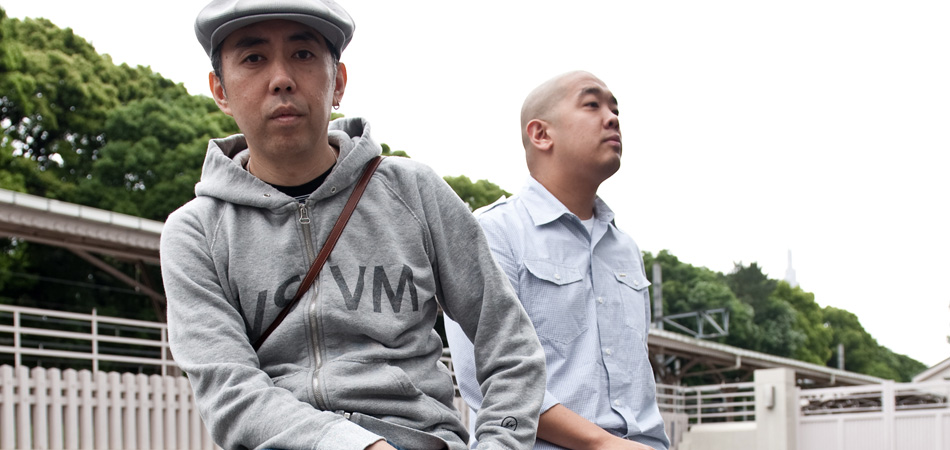
I believe when a company gets too big or international, you lose your own audience.
HF: So you have to be a good businessman. You really have to watch your business model. That’s the main thing. You have to watch your creativity as well.
It’s really a fine balance. People like Bebetan and Tet told me they’re not interested in doing something big, but as a business, they need to think ahead and support themselves.
HF: You really need to know you’re capacity.
Jeff: A business is like a baby or animal. The more you feed it, the bigger it gets, the more it wants to eat. You want it to grow so you feed it more and more and you hire more people and your rent gets bigger, you get another office, another store and all of a sudden you look at your bills and you’re like “wow, It takes me this much money just to keep everything running, to keep the lights on.” I have to make this much every month, it’s kind of crazy.
HF: In that situation… I’m doing really well with fragment design. We don’t really have a lot of risk.
Jeff: Yea, you have 2 employees. He has 2 employees.
Your business is you. fragment design is Hiroshi Fujiwara.
Jeff: What is the most amount of employees you’ve have ever had?
HF: I don’t know. For fragment, 3 or 4. That was when we were making a brand and merchandising and everything. Now we stopped everything.
Jeff: Just to keep it simple.
How about you Jeff?
Jeff: We have like 20 people. It’s freakin’ crazy. It’s so annoying.
You have Staple Design in Japan also, right?
Jeff: Yea, there’s Staple design in Japan and there’s Reed Space in New York and Staple Design in New York. It’s nuts.
Is Reed Space Tokyo maybe making a comeback?
Jeff:Yes, that’s why I’m here [laughs]. That was the main purpose of this trip actually. Hiroshi told me it’s a real bad time to open a store right now though.
HF: I’ll be your shop manager. [laughs]
Jeff: Then I have to hire another person. It was really preliminary meetings here and looking at locations and really seeing where a good space to open. It’s really tough times right now. I don’t really know if we should wait till things get better but when it gets better all the rent goes up. Reed Space in New York is doing really well, like better then 2008 and everything keeps going up. I’m hoping we’re doing something right in New York that might translate here.
I would be real happy to see Reed Space back in Tokyo. Thank You both very much for your time. Do you have any last words?
Jeff/HF: Thank you very much!
企業が大きくなりすぎたり、インターナショナルになると、自分達のオーディエンスがなくなると思います。
HF: だからいいビジネスマンでいなければならない。ビジネスモデルを見ていないといけない。それが一番。もちろん、クリエーティビティーも見ていかないといけない。 とても難しいバランスですね。
BebetanやTetが僕に言ったのは、彼らは大きな事をしたくないけど、ビジネスとして、先の事、そして自分達の事を考えないといけない。
HF: 自分たちの力量を知らないといけない。
Jeff: ビジネスは赤ちゃんや動物のようなもの。食べ物を与えれば、大きくなるけど、その分、食べる量も増える。大きくなってほしいから、もっと食べ物を与え、もっと人を雇い、オフィスの賃借料も増え、もう一つオフィスを設け、もう一軒お店を構え、請求書を見てみると、「わぁ、まわしていくのにこんなにお金が掛かる、電気代だけでこんなに。」だから、毎月これくらい稼がないといけない。クレイジーだよ。
HF: その面では...僕はfragment designではよくやっていると思う。あまりリスクがないから。
Jeff: そうだね、社員が2人しかいないから。彼は2人しか雇っていないんだ。
あなたのビジネスはあなた。fragment designは藤原ヒロシ。
Jeff: 一番多い時で社員は何人いた?
HF: 分からない。fragmentだと、3、4人。それは僕達がブランドを作り、商品化もすべてやっていた時。今は全くやっていないからね。
Jeff: シンプルにするため。
Jeff 、あなたは?
Jeff: 僕達は20人くらい。クレイジーだよ。めんどくさいし。
日本にもStaple Designがありますよね?
Jeff: そう、日本にもStaple Designがあって、ニューヨークにReed Spaceがあって、Staple Designもニューヨークにあって。大変だよ。
東京のReed Spaceは戻ってくるんですか?
Jeff: そう、だから今日本にいるんだ(笑)。この旅の目的はそれなんだ。ヒロシは今ショップをオープンするのはよくない時期だと言っているけど。
HF: ショップマネージャになってあげるよ。(笑)
Jeff: それじゃ、もう一人雇わないと。初期段階のミーティングや立地条件などを調べる為にいるんだ。今は凄く厳しい時期。景気が良くなるまで待つべきなのか、でもそうすると家賃は上がる。ニューヨークのReed Spaceは景気が良くて、2008年よりもいいんだ。だからニューヨークでやっている事が日本でも通用しないか考えているんだ。
東京にReed Spaceが帰ってくるとうれしいです。お二人とも、お時間をありがとうございました。最後に一言?
Jeff/HF: ありがとうございました!
